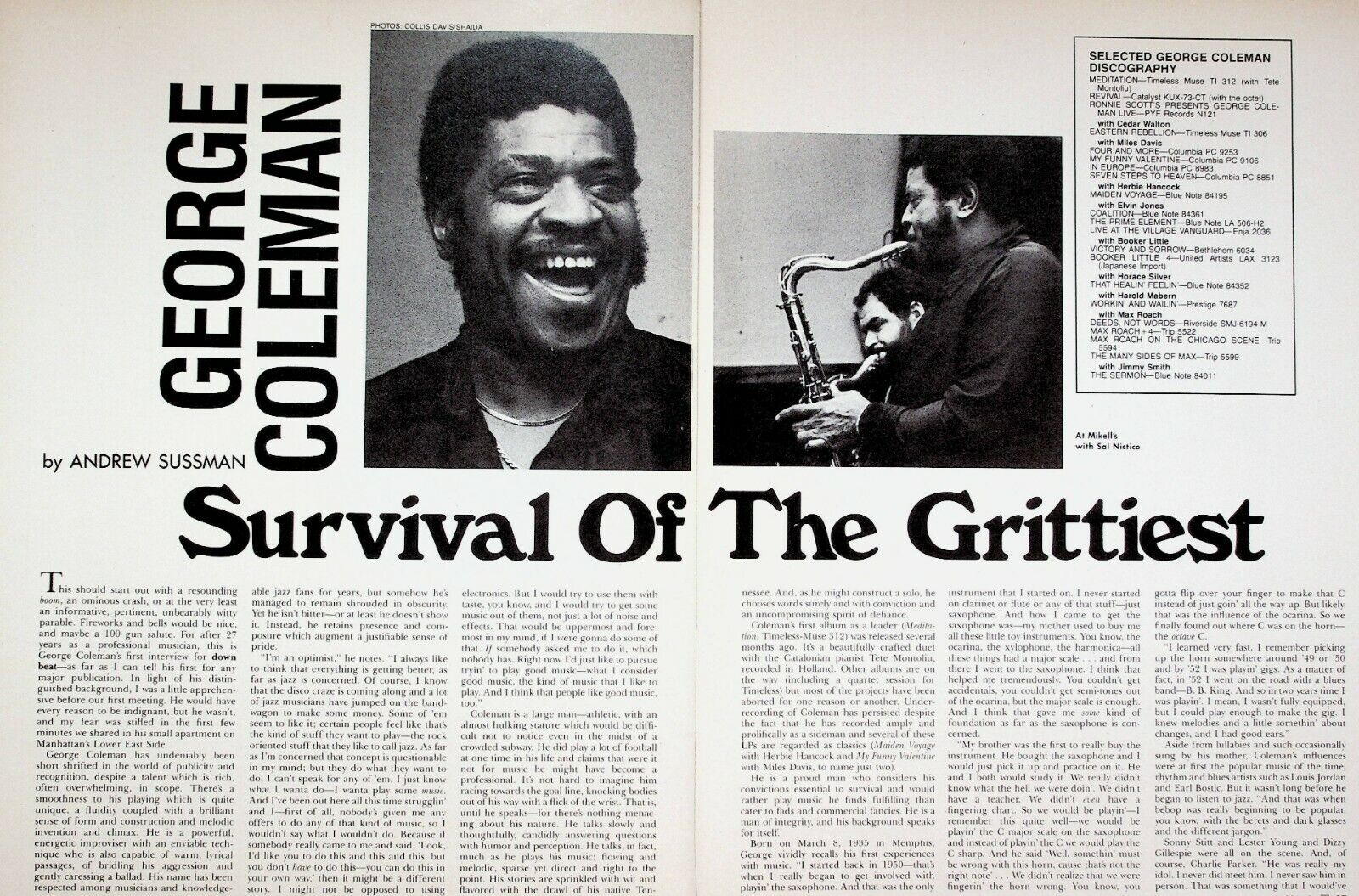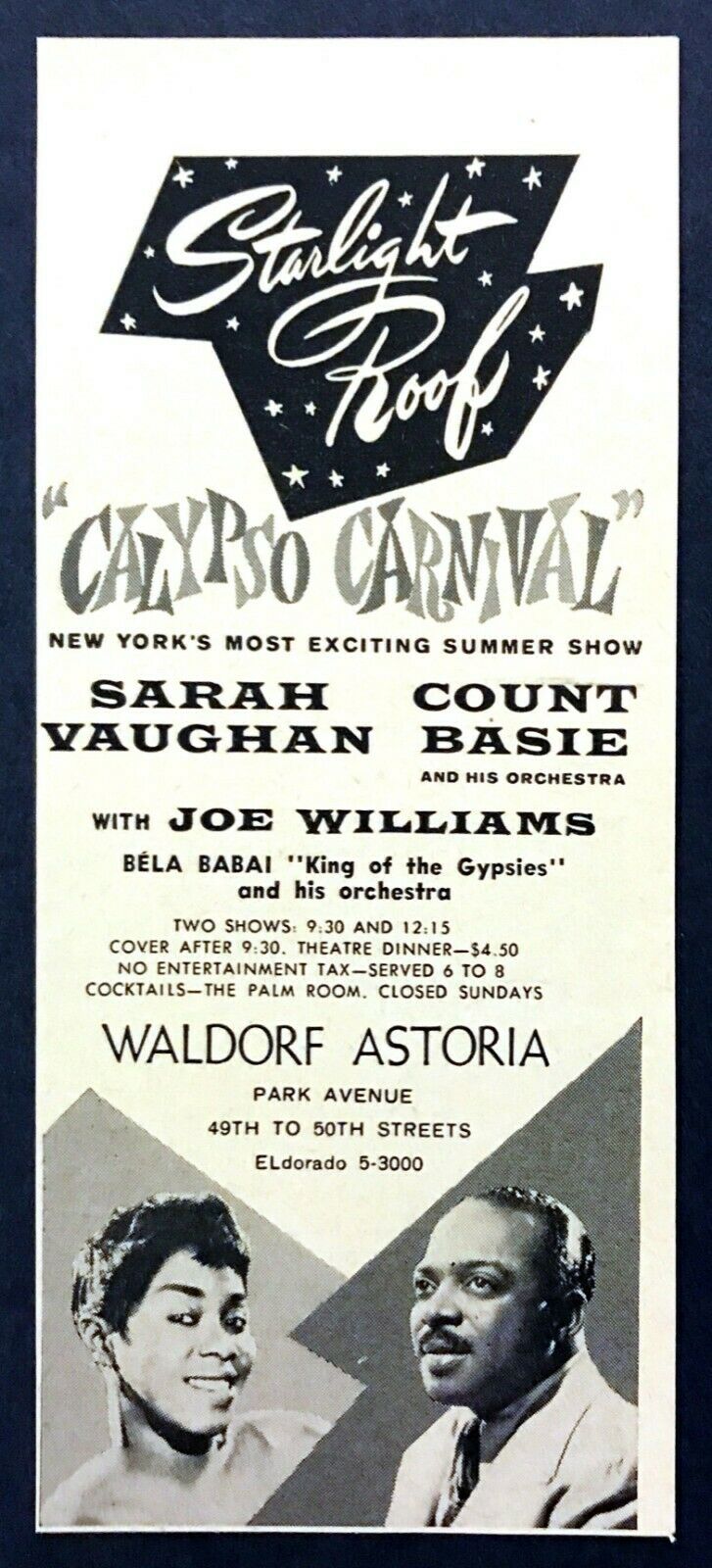-40%
1980 George Coleman Jazz Saxophone Musician - 4-Page Vintage Article Discography
$ 6.46
- Description
- Size Guide
Description
Yes we combine shipping for most multiple item purchases.Add multiple items to your cart and the combined shipping total will automatically be calculated.
1980 George Coleman Jazz Saxophone Musician - 4-Page Vintage Article Discography
Original, Vintage Magazine Article.
Page Size: Approx. 8" x 11" (21 cm x 28 cm) each page
Condition: Good
T
his should start out with a resounding
boom, an ominous crash, or at the very least
an informative, pertinent, unbearably witty
parable. Fireworks and bells would be nice,
and maybe a 100 gun salute. For after 27
years as a professional musician, this is
George Colemans first interview for down
beat—as far as I can tell his first for any
major publication. In light of his distin-
guished background, I was a little apprehen-
sive before our first meeting. He would have
every reason to be indignant, but he wasn’t,
and my fear was stifled in the first few
minutes we shared in his small apartment on
Manhattan’s Lower East Side.
George Coleman has undeniably been
short shrifted in the world of publicity and
recognition, despite a talent which is rich,
often overwhelming, in scope. There’s a
smoothness to his playing which is quite
unique, a fluidity coupled with a brilliant
sense of form and construction and melodic
invention and climax. He is a powerful,
energetic improviser with an enviable tech-
nique who is also capable of warm, lyrical
passages, of bridling his aggression and
gently caressing a ballad. His name has been
respected among musicians and knowledge-
able jazz fans for years, but somehow he’s
managed to remain shrouded in obscurity.
Yet he isn’t bitter—or at least he doesn’t show
it. Instead, he retains presence and com-
posure which augment a justifiable sense of
pride.
“I’m an optimist,” he notes. “I always like
to think that everything is gelling better, as
far as jazz is concerned. Of course, 1 know
that the disco craze is coming along and a lol
of jazz musicians have jumped on the band-
wagon to make some money. Some of ’em
seem to like it; certain people feel like that’s
the kind of sluff they want to play—the rock
oriented stuff that they like to call jazz. As far
as I’m concerned that concept is questionable
in my mind; but they do what they want to
do, I can’t speak for any of ’em. I just know
what I wanta do—I wanta play some music.
And I’ve been out here all this lime strugglin’
and I—first of all, nobody’s given me any
offers to do any of that kind of music, so I
wouldn’t say what I wouldn't do. Because if
somebody really came to me and said, ’Look,
I’d like you to do this and this and this, but
you don’t have to do this—you can do this in
your own way,’ then it might be a different
story. 1 might not be opposed to using
electronics. Bui I would try to use them with
taste, you know, and I would try to get some
music out of them, not just a lot of noise and
effects. That would be uppermost and fore-
most in my mind, if I were gonna do some of
that, //somebody asked me to do it. which
nobody has. Right now I’d just like to pursue
tryin’ to play good music—what I consider
good music, the kind of music that 1 like to
play. And I think that people like good music,
too."
Coleman is a large man—athletic, with an
almost hulking stature which would be diffi-
cult not to notice even in the midst of a
crowded subway. He did play a lot of football
at one time in his life and claims that were it
not for music he might have become a
professional. Il's not hard to imagine him
racing towards the goal line, knocking bodies
out of his way with a flick of the wrist. That is,
until he speaks—for there’s nothing menac-
ing about his nature. He talks slowly and
thoughtfully, candidly answering questions
with humor and perception. He talks, in fact,
much as he plays his music: flowing and
melodic, sparse yet direct and right to the
point. His stories are sprinkled with wit and
flavored with the drawl of his native Ten-...
14883-AL-8003-75









